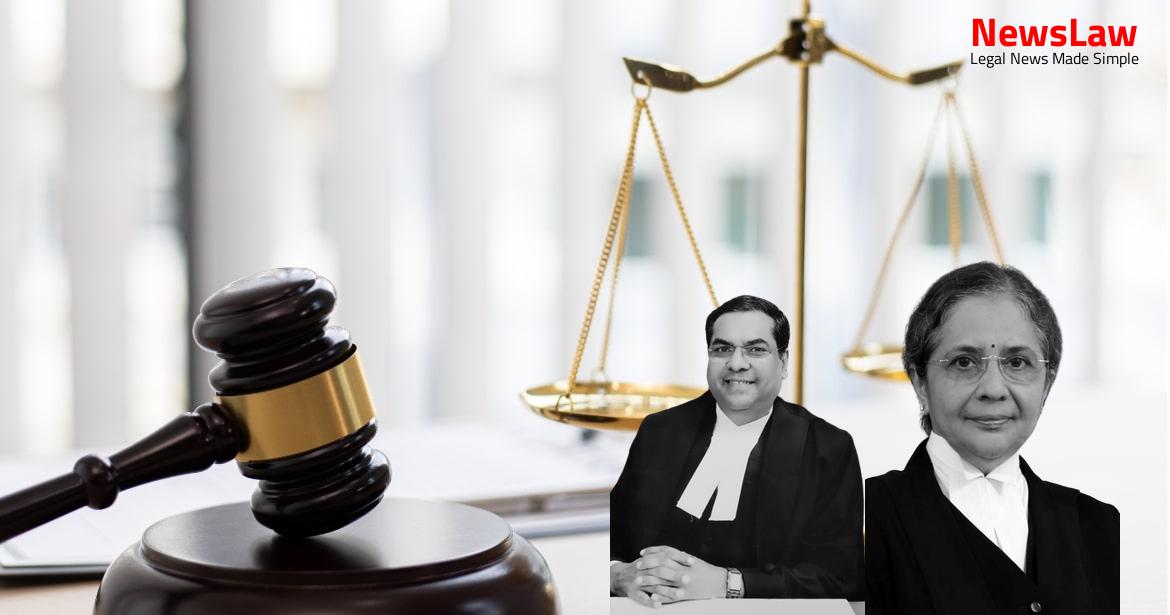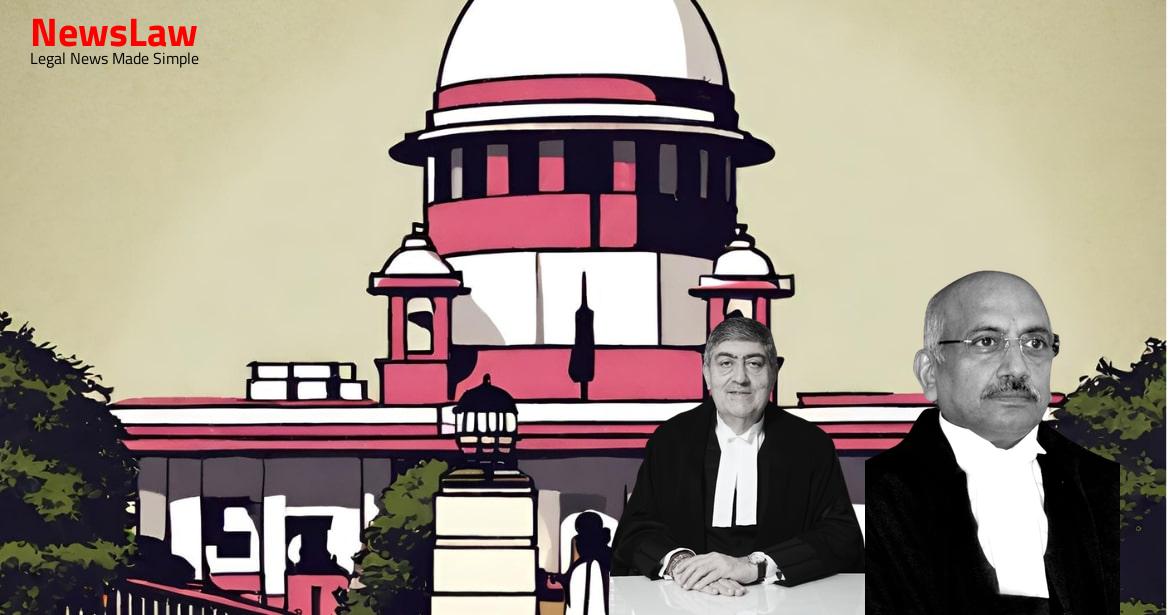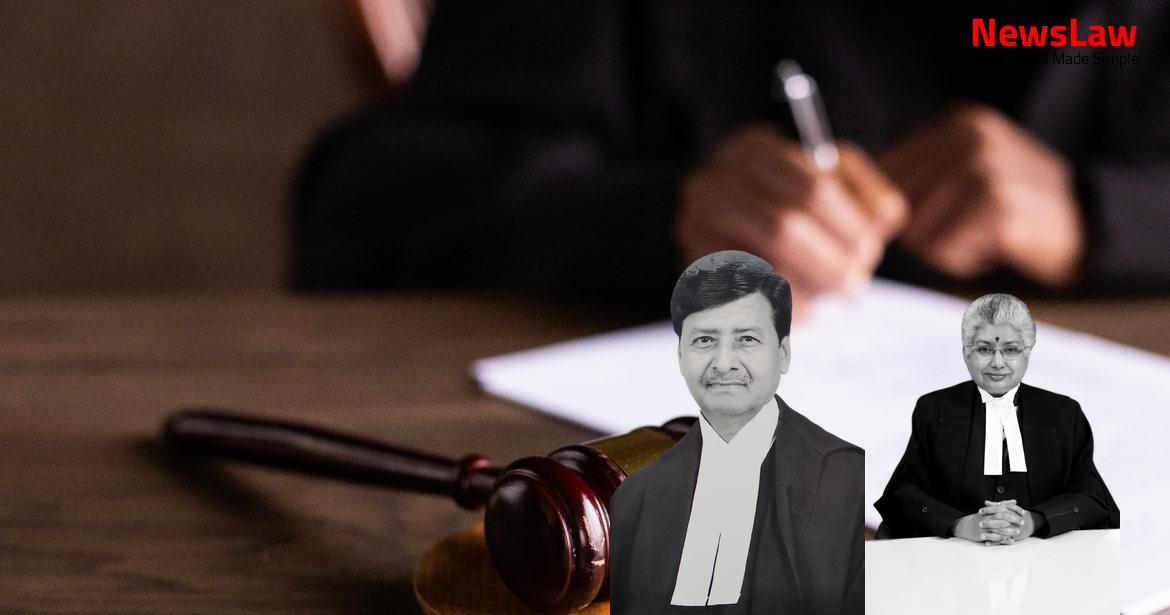Explore a recent legal case where the court delves deep into the interpretation of regulations, emphasizing the significance of judicial analysis in upholding regulatory frameworks. The case highlights the importance of clarity in regulatory systems and the role of courts in ensuring consistency and fairness in legal decisions. Stay tuned to unravel the complexities of regulatory interpretation and the impact of judicial scrutiny on legal outcomes.
Facts
- The Board issued a letter mandating the Merchant Banker to revise the offer price to shareholders due to acquisitions made by R 3 in 2006 and 2007.
- An Extraordinary General Meeting approved issuance of 25,00,000 equity shares to strategic investors.
- The promoters’ shareholding increased from 10.52% to 17.16% and collectively increased from 25.83% to 34.21%.
- The Appellate Tribunal allowed the respondents to continue with their offer, excluding the Board’s directions regarding the 2006 and 2007 acquisitions.
- The appeals raised questions about the interpretation of regulations and the powers of the Board and the Appellate Tribunal.
- The case of Sunil Krishna Khaitan involved violation of regulations regarding share acquisitions without public announcements.
- Contentions of the Board included details of share acquisitions, warrant conversions, and hearings provided to R 3.
- The show-cause notice alleged violations of Takeover Regulations 1997 against the respondents.
- Pitti Laminations Ltd. shareholders faced issues with regards to share allotments and increase in individual shareholdings.
- Contestations by the respondents were made against the show-cause notice.
- The Whole Time Member of the Board found a violation of Regulations 10 and 11(1) of the Takeover Regulations 1997.
- A combined public announcement to acquire shares of KEL was ordered within forty-five days.
- Interest of 10% per annum was to be paid from June 16, 2007, till the date of payment to shareholders holding shares in KEL on the violation date.
- The Appellate Tribunal partly allowed the appeal, setting aside the public announcement and open offer directions but imposing a monetary penalty.
- Regulation 10 was not deemed violated, but Regulation 11(1) was found to be violated.
- There was a delay in issuing show-cause notice for incidents from 2006-07, leading to the setting aside of the initial directions.
- The Appellate Tribunal criticized the Board for issuing directions to listed companies without providing a choice, calling it a mere advice.
Also Read: Analysis of Bail Conditions in Criminal Appeal No. INSC 48/2024
Analysis
- Construction of regulations should avoid addition or substitution of words, ensuring all words have meaning.
- Exceptions exist to the rule of construction.
- Claims based on legitimate expectations akin to promissory estoppel.
- Decision dated 25 July 2012 in Hanumesh Realtors case is per incuriam due to incorrect reference to Swedish Match decision.
- Principle of doubtful penalization applies, especially in beneficial or remedial statutes.
- Efforts should be made to give meaning to each word used by the legislature.
- Interpretation may involve divergent principles and balancing conflicting factors.
- Regulatory systems must uphold certainty and consistency for individuals.
- Exercise of discretion should be fair and based on rational assessment of facts and law.
- Principle against doubtful penalization discourages actions that endanger economic interests without clear authority of law.
- Legislature’s intention is primarily to be gathered from the language used.
- Doctrine of substantive legitimate expectation has been applied by Indian courts in certain cases.
- Legitimate expectation requires rational grounds for withdrawal of benefits.
- Regulation 10 interpretation in relation to combined shareholding considered in Prakash Gupta case.
- Acquirer’s delay in filing report does not establish a breach in certain cases as seen in Himmat S. Sonewal case.
- Legitimate expectation must involve depriving a person of a past benefit or advantage.
- Objective of Sections 11 and 11B of the Act with Regulation 44 of Takeover Regulations 1997 is distinct, ensuring rational grounds for withdrawal of benefits.
- Section 11B gives the Board power to issue directions after an inquiry if it is necessary for the interest of investors or the orderly development of the securities market.
- Regulation 44 outlines the factors the Board must consider when issuing directions, focusing on the interest of the securities market and the protection of investors.
- The discretion given to the Board under Regulation 44 is crucial for effective regulation of the complex securities market.
- The term ‘person acting in concert’ is defined to include individuals cooperating for the acquisition of shares or gaining control over a target company.
- The Securities Appellate Tribunal has jurisdiction over appeals related to orders made by the Board or an adjudicating officer under the Act, with specific provisions on the time limit for filing appeals.
- Appellate Tribunal found the order on violation of Regulations 10, 11, and 12 to be sustainable
- Appellate Tribunal deemed the directions under Regulation 44 to be unsustainable
Also Read: Conviction Upheld for Murder and Concealment of Body
Decision
- Board directed not to initiate proceedings under Chapter VI-A of the Act
- Board allowed to initiate proceedings and pass an order under Chapter VI-A of the Act
- No interference with the penalty imposed in Sunil Krishna Khaitan’s case
- Direction regarding finality of the said order
- Civil Appeals by the Board dismissed with a clarification on the power of the Appellate Tribunal under Section 15-T of Chapter VI-A
Also Read: 1991 Decree Invalid: No Determination of Rights in Property Dispute
Case Title: SECURITIES AND EXCHANGE BOARD OF INDIA Vs. SHRI SUNIL KRISHNA KHAITAN (2022 INSC 669)
Case Number: C.A. No.-008249-008249 / 2013



